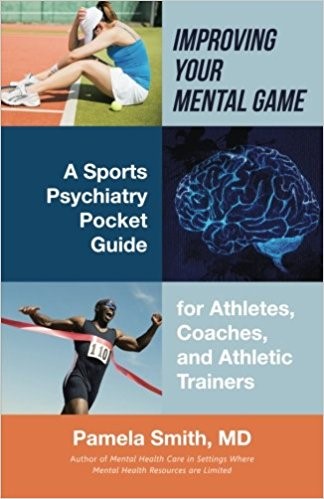Sports psychiatry uses psychological, neuroscientific, and medical knowledge to address optimal performance and well-being of athletes. The “mental game” refers not only to a mind that has been conditioned through mental skills training for optimal performance, but also to a broader mindset that includes an awareness of psychosocial issues and mental conditions that potentially impact performance.
The pocket guide is a practical, concise, and convenient handbook for athletes, coaches, trainers, and other sports medicine clinicians with topics including:
1) Core psychological techniques for improving athletic performance (e.g. imagery, goal setting, self-talk, relaxation);
2) Tips and exercises for managing focus, negative self-talk, pressure, daily learning & growth commitment, self-defeating distractions, fear, motivation, riding the bench, taking responsibility, controlling emotions, self-belief & confidence, trust & consistency, and pregame warm-up;
3) Psychosocial issues impacting performance (e.g. team cohesion, managing team conflict, coping with injury, end of career issues);
4) Mental conditions associated with the competitive sports environment (e.g. anxiety, depression, substance abuse, concussion, eating disorders);
In addition, information on banned substances (of which many are psychoactive), athletes with disabilities, and brain health maintenance (e.g. sleep and nutrition for optimal brain & neuromuscular function) is included.
TRAINING GUIDE
info@improveyourmentalgame.com
